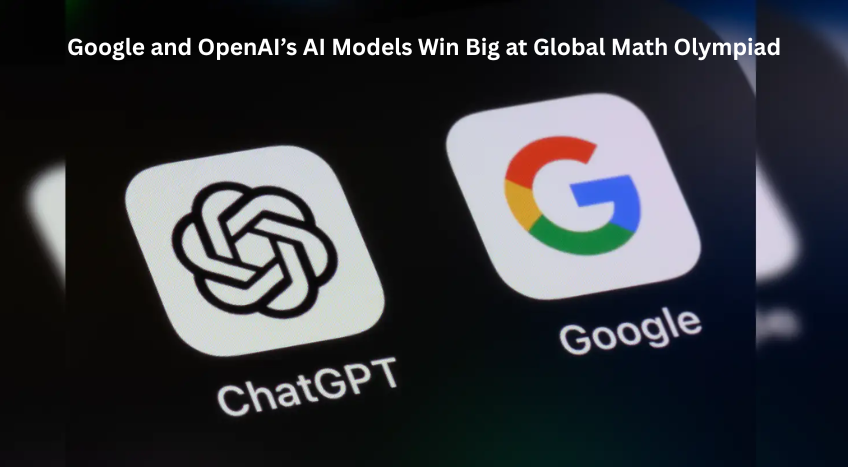
In a landmark achievement for the tech world, Google and OpenAI have rewritten history—this time with numbers. Their advanced AI models clinched top honors at the prestigious International Mathematical Olympiad for AI, setting a new benchmark in artificial development and reshaping how we perceive intelligence, both human and machine.
🧠 From Problem Solvers to Math Champions
Traditionally, the Global Math Olympiad has been a playground for the most brilliant young human minds. This year, for the first time, AI systems were allowed to compete on equal footing with humans, and the results were jaw-dropping.
OpenAI’s GPT-4 and Google DeepMind’s AlphaGeometry didn’t just participate—they won gold, outperforming many top-tier human participants. This breakthrough highlights not just a technical feat but a philosophical one: machines can now solve complex problems once thought to require uniquely human intuition.
🚀 What This Means for the Future of AI Development
The win isn’t just a trophy moment—it’s a milestone in AI development. These AI models weren’t merely trained on math problems. They were developed using neurosymbolic systems, which combine deep learning with symbolic reasoning. This enables them to simulate human-like understanding of logic, geometry, and problem-solving.
At Aixcircle, we see this as a clear signal:
We’re entering a new age of artificial development, where AI doesn’t just support problem-solving—it leads it.
🧩 How Did They Win? A Peek Behind the AI Curtain
Google’s AlphaGeometry shocked experts by solving 25 out of 30 extremely difficult geometry problems, many of which stump even PhDs. The secret? A combination of:
Large Language Models (LLMs) for understanding problem statements
Symbolic Reasoners for executing mathematical logic
Neural Search Algorithms that mimic the way mathematicians explore options
Meanwhile, OpenAI’s GPT-4 Turbo showcased its prowess in algebra, calculus, and logical proofs—demonstrating a near-human understanding of abstract concepts and equations.
🌍 Why This Matters for Everyone
This isn’t just a win for AI companies. It’s a global moment of realization. If AI can outperform top mathematicians today, it’s only a matter of time before:
Research gets accelerated by AI-led discoveries
Education is transformed by AI tutoring tools that think like top instructors
Engineering & Development become smarter with AI-driven design and simulation
Scientific Innovation reaches new frontiers with AI as a co-pilot
For businesses, especially those working with data, automation, and innovation, this evolution means increased efficiency, better predictive models, and faster AI solutions.
🔍 AI Development at a Crossroads
This victory spotlights a major shift:
We’re no longer just developing AI to follow instructions. We’re now creating systems that reason, infer, and discover—qualities once seen as purely human.
Such advancements reinforce the need for ethical guidelines, transparent development, and collaborative human-AI ecosystems. AI is becoming less of a tool and more of a thinking partner—and that changes everything.
📢 Final Thoughts from Aixcircle
At Aixcircle, we believe that this historic achievement is a symbol of what’s possible when the brightest minds in artificial development push boundaries.
Whether you’re a tech leader, a startup founder, or an AI enthusiast, one thing is clear:
The future of intelligence is not just artificial—it’s collaborative.
This win by Google and OpenAI is not just a headline—it’s a signal. The AI revolution is here—and it just aced math class.
